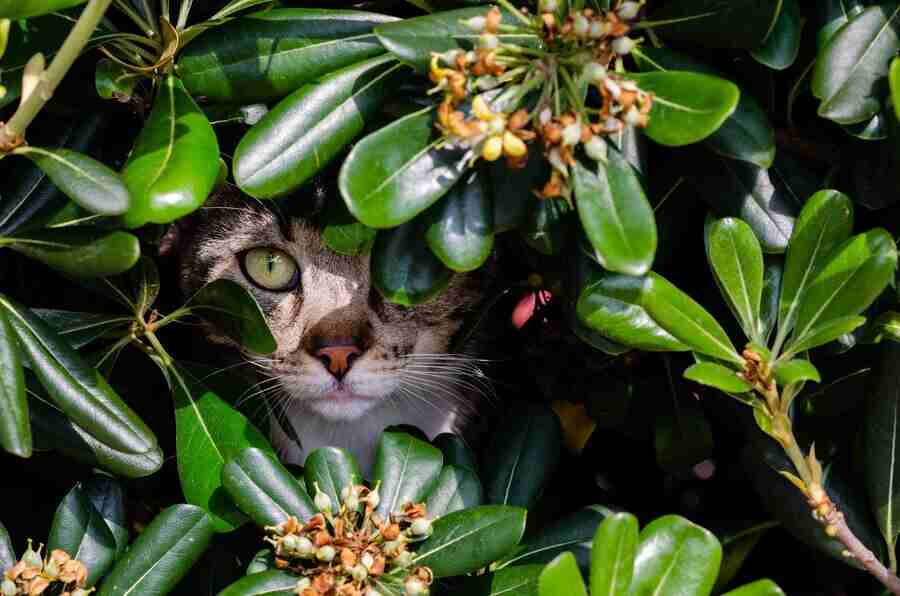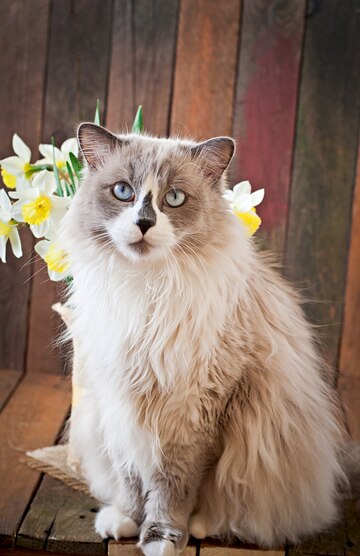
Exotic cats are amazing creatures — they look different from any other domestic cat, yet retain all of the typical breeds and temperaments. They frequently grab attention by resembling their wild relatives, but they are docile and often good companion animals. Today, we delve into the world of exotic cats and the various facets that make them unique and desirable.
1. What Defines an Exotic Cat?
There are many breeds of hybrid cats, but trying to get a truly exotic breed is more complicated as it may well be illegal and take some years before you find one. Huge ones built like Shire horses or the smaller more refined frames that might be seen going around on a lead rein. While standard domestic cats are well and good, exotic breeds have eye-catching coats in striking colors and patterns that harken back to the appearance of their wild ancestors — making them a real standout in the feline world.
Examples of exotic cats are the Bengal, Savannah, and Caracal. Not to mention, these breeds can often be willful and have quirks similar to their wild cousins- they are typically high-energy individuals who require swaths of stimuli or maybe zealously possessive with prey drive.
2. Physical Characteristics
The stunning physical traits of exotic cats one of the most important factors affecting people who desire to own such a wild-looking creature is very often strictly that external appearance. Some exotic breeds have similar coats as wild animals, like the leopard spots of Bengal, or Caracal’s tufted ears look just lynx-like. Some characteristics such as their appearance are common with some of the wild cats since many exotic cats are descended directly from species that were originally found in the jungle.
Some Exotic cats also have a slightly more muscly build as compared to domestic breeds. The Savannah cat has a long and slim body, as well as being very tall with perfect legs that can rival those of the Serval….all serve varying points in their high-performance careers—helping cats sprint more quickly, leap to higher elevations and struggle fighting off the villains trying to steal food.
3. Temperament and Personality
Exotic cats are still wild, after all! Even being domesticated, they still have inherited some instincts and features that might not be good for all families.
Bengal cats are a great example of this because they have so much energy and love playing, and climbing all over the place. They need significantly more mental and physical stimulation than the average house cat. Just like the Savannah cat, this breed is very playful and can be more independent and assertive as well. While they develop a strong emotional bond with their human family, what sets them apart from traditional pedigrees is that they can be less aloof or cuddly.
Overall, exotic cats require more upkeep and room than most common domestic breeds. These dogs do best in settings where they have ample space to run and frolic, toys to keep them entertained, and puzzles that need solving. Exotic cats require a more experienced owner and can be reserved for those with prior cat ownership experience.
4. Dietary Needs
Exotic cats also have different feeding habits from the usual domestic cat which is essential in health care. Others like the Bengal and Savannah may require higher protein consumption per meal (or raw meat) suited to their dietary needs. They are more like the wild ancestors of our modern-day cats and as such, need a high-protein diet to sustain their energy levels; these lean bodies derive from lots of play.
Maintenance is crucial for ensuring a healthy tortoise, so ensure they have their correct diet requirements by researching. Some exotic cats may be supplemented with an additional supplement that offers nutrients that might not otherwise have been in their regular diet when they were living wild.
5. Exercise and Enrichment
Exotic cats are active and energetic so it is crucial to provide sufficient exercise as well as mental stimulation. Most house cats would be happy lazing around all day, but exotic cats just aren’t meant that way- they like to run and climb and play more of a hunting style. If they do not get enough exercise, they could develop behavioral problems or destructive habits.
Varying toys, cat trees, and interactive puzzles are essential for them. Exotic cats, however, can be leash trained and in some cases are good candidates to confidently stroll the outdoors. What this does is not only help them to burn off energy, but it stimulates their natural curiosity and predator instincts.
6. Health Concerns

However, because these cats are hybrids there is an increased risk of inheriting specific health conditions that might not be so common in the ordinary domestic cat. For instance, there is a genetic heart condition that can affect the Bengal cat – hypertrophic cardiomyopathy (HCM), while Savannah cats may be more susceptible to urinary tract infections.
This is important for owners of exotic species, who require a vet to understand their unique care. Periodic vet visits and examinations are as much necessary when it comes to safeguarding your exotic cats.
7. Legal Considerations
Owning an exotic cat can be illegal in some countries or states. This can mean that in some regions, breeds such as the Savannah cat (especially F1s and F2s which are far more “wild”) may be restricted or even outright banned due to their wild heritage presenting a possible threat to native wildlife.
Before deciding to purchase an exotic cat, prospective owners should always verify local ordinances in their city or county. Furthermore, it is very important to get exclusive pet cats from reputed dog breeders who appreciate the health and wellness as well as the blamelessness of the pets.
8. Breeding and Lineage
Many exotic cats are produced only through meticulous breeding programs, especially among hybrids such as the Bengal and Savannah. Breeders strive to preserve the wild attributes that make these animals unique while attempting to acclimate their new owners and teach them how they should be handled, what could go wrong otherwise?
The breeding can be a long process that often involves several generations of wild and domestic cats. For example, early-generation Savannah cats (F1, F2) are direct descendants of wild Servals, while later generations (F3, F4) are more domesticated. Temperament and care requirements may differ as a result, with subsequent generations often being better suited to most typical home environments.
9. Ownership Responsibility
Exotic cats require a big responsibility. These cats usually need more care, attention, and resources as compared to regular domesticated cats. Owners must also be willing to devote time and resources to training, creating a successful environment for their cats both mentally and physically.
Purchasing an exotic breed should not be taken lightly and you should do your research about the particular breed of cat that you are purchasing and see if it matches well with an expected approach towards its care. All exotic cats might not be well suited to family life in homes with swinging six-year-olds or a bichon frisé, so the right breed needs to match your household.
Conclusion
Exotic cats are very rare and unique pets so it is a two-sided equation that can be very rewarding or nearly impossible. These cats look like they are straight out of the wild, from their appearance to their activity level these felines will bring a small part of the wilderness into your home. But this is done so with bridges detailing additional obligations to which you are subjected, from the laws that oversee your new relationship, right down to specialized care. They may be demanding creatures, but for those prepared to fulfill their needs: exotic cats are as loyal as a dog and far more fun.
When a person is aware of what each unique species needs in terms of care and attention, they can cater to their pet — making the home more loving, but also comfortable.
FAQs
Exotic Cats No, exotic cats are not good choices for first-time cat owners. Bengals need more attention, exercise, and mental stimulation than most standard domestic cats. Their wild nature often makes them more difficult to take care of, and they typically require a special diet, environment, and training.
That is correct, many exotic cats get high-protein diets (frequently using raw meat), as well to imitate what they would eat in the wild. Their dietary requirements could be different from those of normal domestic cats so seeking veterinary advice is critical to know the best diet suitable for that breed.
No, because the legality of owning exotic cats differs from country to region. However, some breeds have wild ancestry and may be not allowed in your location — for example, early-generation Savannah cats. Be sure to research local laws before getting an exotic cat.




